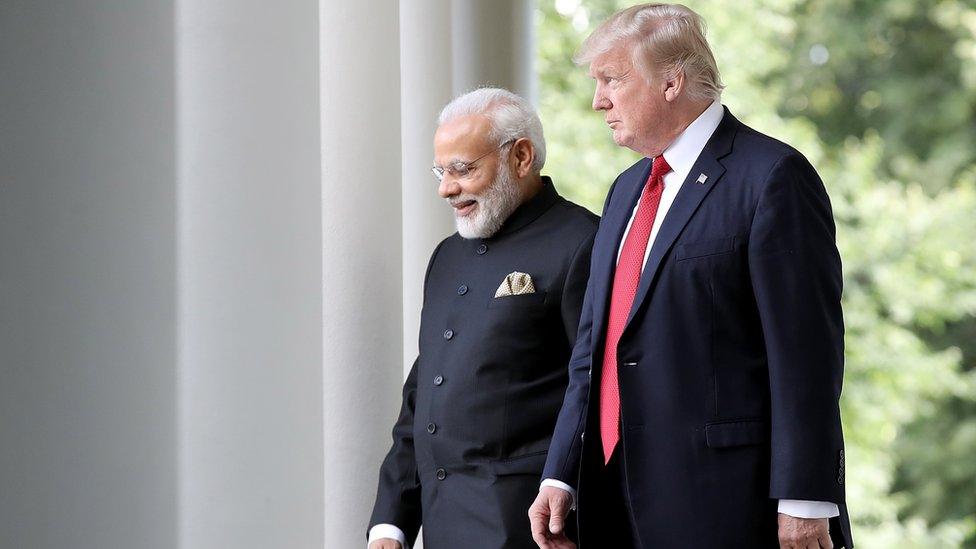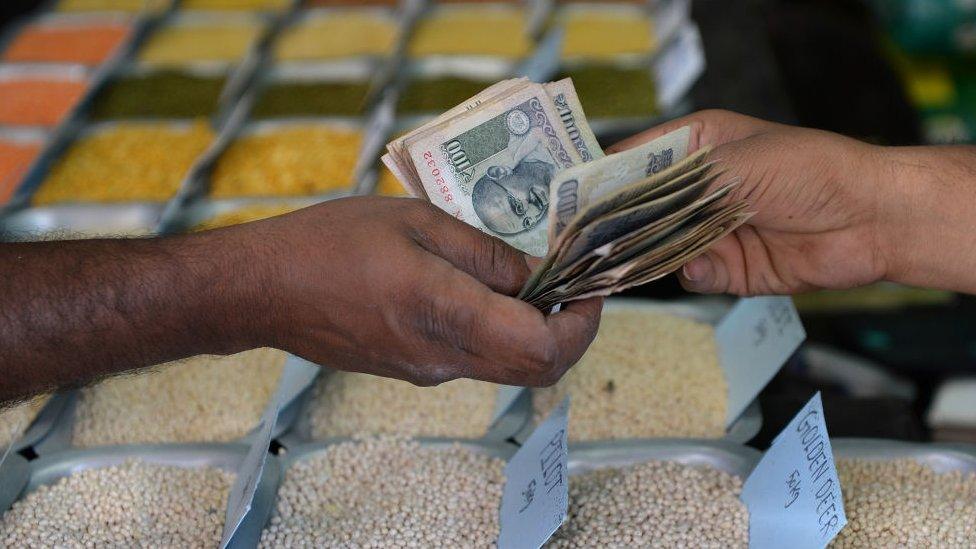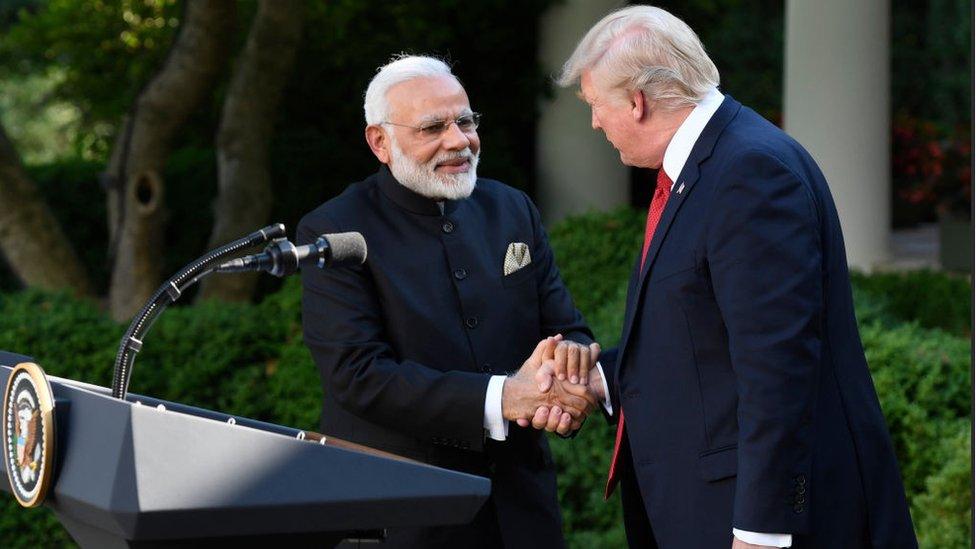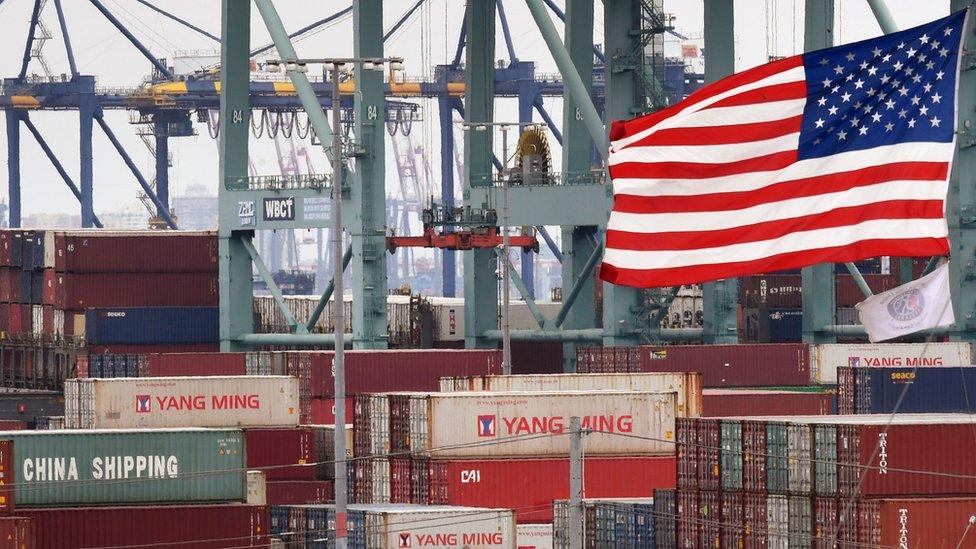US ends special trade treatment for India amid tariff dispute
- Published

Mr Modi and Mr Trump have had cordial ties but their countries are at odds over trade
The US will end preferential trade status for India next week, President Donald Trump has confirmed amid a deepening row over protectionism.
India had been the largest beneficiary of a scheme that allows some goods to enter the US duty-free.
However that status will end on Wednesday, Mr Trump said.
In March he announced that it would be revoked because India had failed to provide adequate access to its markets, but Mr Trump gave no date.
On Friday he said: "It is appropriate to terminate India's designation as a beneficiary developing country."
India had said the move would have a "minimal economic impact", but it comes at a time lower growth and record unemployment in the country.
Sujitha Rajendrababu tells the BBC how getting a job at a car factory has changed her life
Until now, preferential trade treatment for India under the Generalized System of Preferences (GSP) programme allowed $5.6bn (£4.3bn) worth of exports to enter the US duty free.
The move is the latest push by the Trump administration to redress what it considers to be unfair trading relationships with other countries.
Last month the US ended Turkey's preferential status under the scheme.
Mr Trump has also imposed tariffs on steel and aluminium imports from countries around the world. Last year, India retaliated against those tariff hikes by raising import duties on a range of goods.
Separately, the US is involved in an escalating trade war with China, and recently threatened tariffs on Mexican goods over illegal migration.
- Published31 May 2019

- Published28 June 2018

- Published16 January 2020
